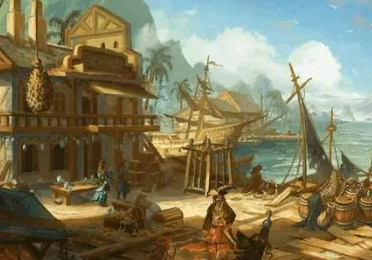In the 15th century Europe, a great nautical exploration movement quietly emerged. This movement opened a new chapter in human history, making the scope of the world no longer limited to known land, but expanded to the vast ocean. One of the protagonists of this movement, Portugal, with its unique geographical location and advanced nautical technology, successfully led the trend of this era.

II. Portugal's Geographical Advantages
Located in the southwestern Europe, facing the Atlantic Ocean and boasting a long coastline, Portugal is a natural maritime country, providing unique conditions for its nautical undertakings.
III. Portugal's Nautical Technology
The key to Portugal's leadership in the nautical era lies in its innovations and breakthroughs in nautical technology. They invented more precise nautical instruments, such as compasses and astrolabes, enabling mariners to find their way in the vast sea. At the same time, they also improved the design of ships, making them more suitable for long-distance voyages.
IV. Portugal's Nautical Achievements
In the nautical era, Portuguese made a series of achievements. They discovered new routes, opening up new passages to Africa, Asia, and America. Among them, the most famous is the voyage of Vasco da Gama, who successfully bypassed the Cape of Good Hope and arrived in India, bringing great wealth to Portugal.
V. Conclusion
The Portuguese nautical era is not only a golden period in the history of Portugal, but also an important chapter in human history. During this period, the bravery and wisdom of the Portuguese promoted the progress of human civilization and left us valuable historical legacies.
Disclaimer: The above content is sourced from the internet and the copyright belongs to the original author. If there is any infringement of your original copyright, please inform us and we will delete the relevant content as soon as possible.































